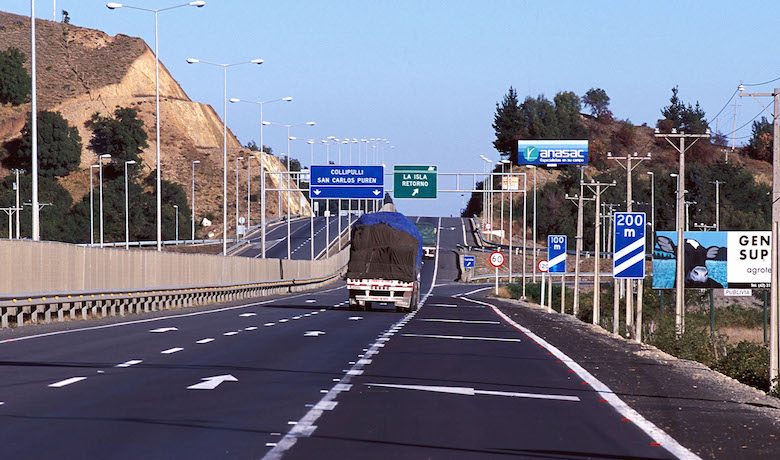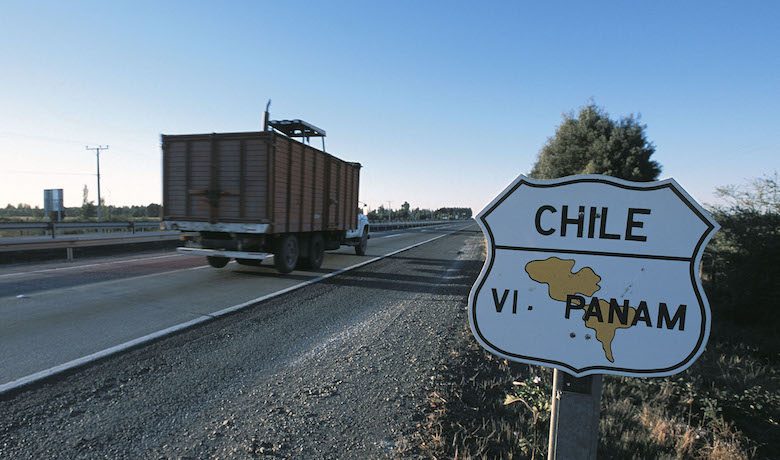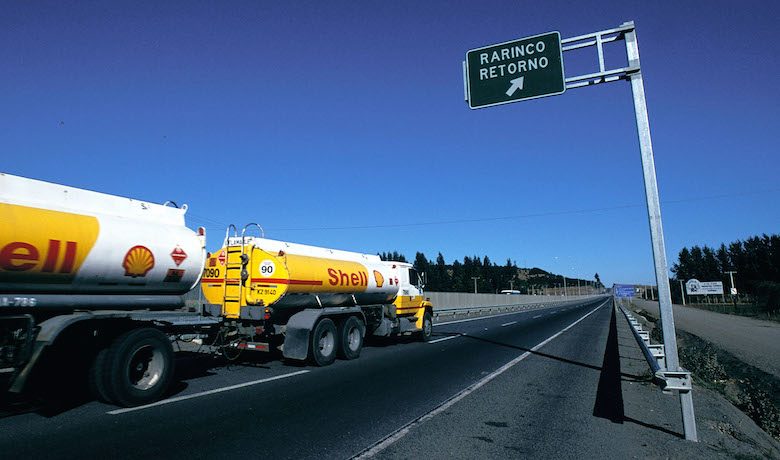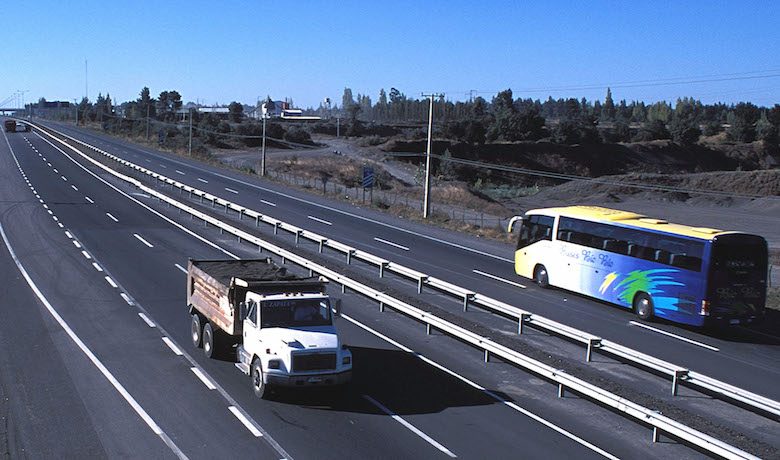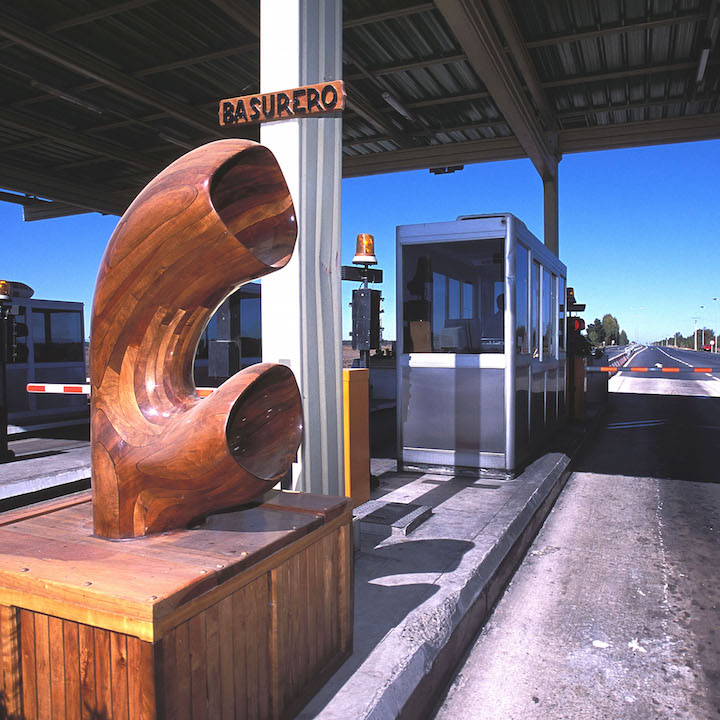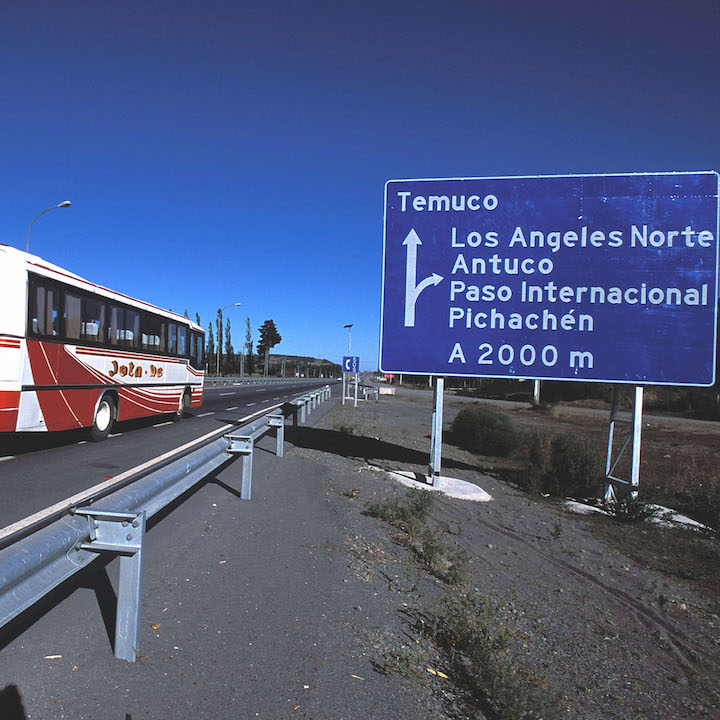BACKGROUND
The project is part of a general plan by Ministerio de Obras Publicas (the ministry of public works) to rehabilitate and provide an alternative to the existing highway, “Ruta 5 Sur,” which connects La Serena (450 km north of Santiago) to Puerto Montt (1,200 km to the south). The objective was to resolve problems resulting from the concrete roadway’s advanced state of disrepair and the increasing volume of heavy vehicles carrying merchandise from the southernmost part of the country to the northernmost part of the continent along the Pan-American Route. Since there are no fewer than 25,000 vehicles per day and 20 accidents per month (during peak periods) on this highway, the authorities decided that safety needed to be optimized and emergency interventions facilitated.


